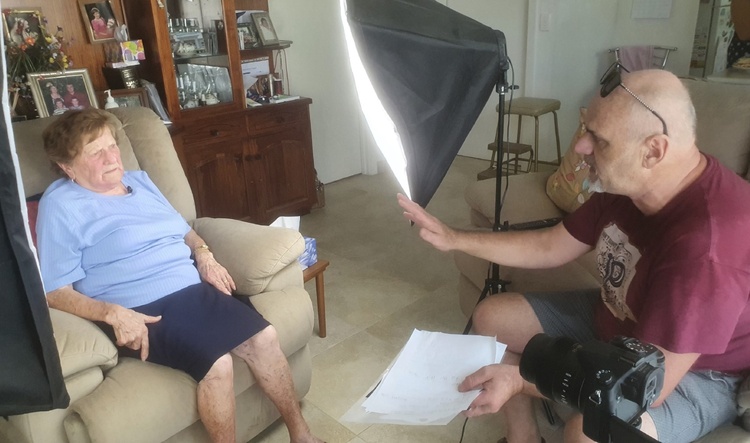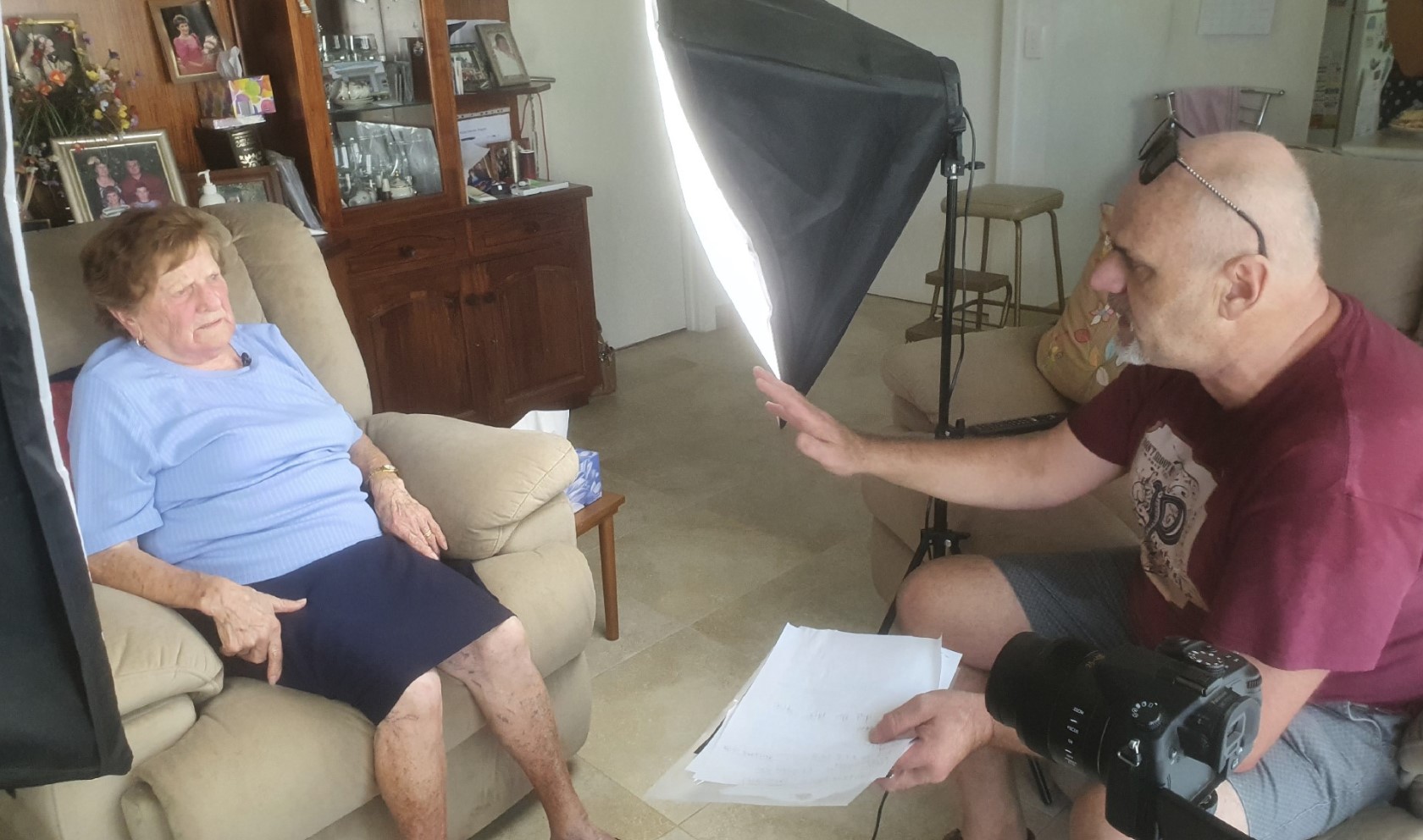Through engaging interviews and testimony, Reich captures the textured experiences of those who, having escaped the devastation of war, sought a new life in Australia.
I had the privilege of interviewing Reich to delve into his personal connection to the project. Reich shared a touching story about his father who resided in Berlin throughout the war and lived through intense moments in the German capital. From his retelling, what emerges is the horror of bombings and the closeness to Hitler’s bunker, as well as the decision to move to Australia in the 1950s, with Bonegilla a crucial part of his new life.
To fully understand the significance of this documentary, it’s necessary to take a step back in time. The Bonegilla camp was the refuge of thousands of migrants after the Second World War. “This is a precious fragment of Australian history, a testimony of the challenges faced by migrants in shaping the future of the nation, and it shouldn’t be forgotten,” explained Reich.
Bonegilla played a crucial role in accepting thousands of migrants from all over the world, and Reich, by presenting the stories of those who lived in the camp – people with varied professions and cultural backgrounds – allows a rich and diverse narrative to emerge.
One of the most fascinating aspects of the interviews is the reflection on the migrants’ culinary experiences. Reich underscores how many of them, unsatisfied by the food provided in the camp, proposed to make use of their culinary skills. From this proposal emerged a collaboration that led to the creation of a communal kitchen – a refuge in which the gastronomic traditions of Italy, Switzerland, Germany, and other countries mixed to create an experience of belonging and exchange.
A constant within the testimonies is the migrants’ dedication to work. Their determination and indefatigable commitment to building a new life is reflected in the rapid economic prosperity many experienced, with some buying houses in their first years in Australia.
“Some migrants got work as cooks. Others, instead, cleaned, did laundry or drove trucks. They worked so hard that some of them, especially the Italians, started to buy houses within three or four days of their arrival,” he revealed.
“Some migrants lived at Bonegilla for a long time. I interviewed some people who stayed there for thirty years.
“They loved the camp above all for its social dimension. Their kids played together. Everyone helped each other and they were always friendly.”
Reich’s project was born from a personal exploration of his family’s roots, culminating in a series of podcasts entitled Up from the Rubble, which traced the vicissitudes of his father from the war to migration to Australia. The director then travelled across Australia, meeting and interviewing migrants that passed through Bonegilla. One of the most touching interviews is that of Rosa Sartor, an Italian woman who recounted how she began her new life in Australia after the tragedies of the war.
“Rosa spoke of how, in those years, the Australian government had begun to campaign saying they wanted development, more workers and a bigger country to make the economy take off,” he shared.
“To incentivise immigration, the government offered a free journey via ship, which could transport up to 1000 people in one go. Once they arrived in Australia, Italians grouped together, because they obviously all spoke the same language.”
Reich is also a musician and composer, making an important aspect of the documentary – and of the performance on December 7 and 8 – the soundtrack. “Music has the power to amplify emotions and make memories tangible. I wanted the public to immerse themselves completely in the experiences of the migrants,” Reich stated.
In short, Bonegilla Migrant Camp is not only a documentary, but a journey steeped in empathy for the lives of all those who faced the challenges of migration with courage and hope. Reich, with his captivating narration, offers us a window into history, giving voice to stories that may otherwise be forgotten.
This cinematic event promises to be a compelling experience – a bridge between the past and present that will alert the public to the rich nuances of Australia’s migration history.
For further information and to buy tickets, click here.












